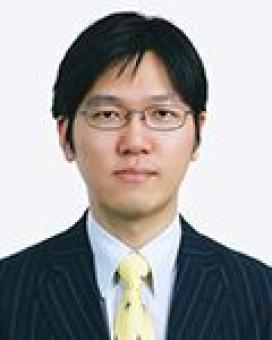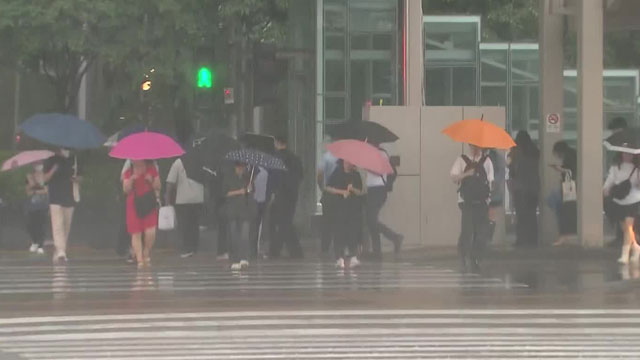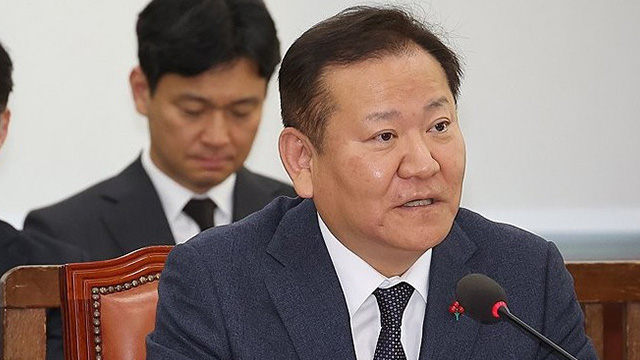When will the appointment of the three vacant constitutional court judges be made?
입력 2024.12.15 (03:04)
수정 2024.12.15 (03:10)
읽어주기 기능은 크롬기반의
브라우저에서만 사용하실 수 있습니다.
[Anchor]
The opposition party plans to finalize the appointment of three vacant constitutional court judges by the end of this year.
However, it remains uncertain whether the ruling party will respond positively to this.
Reporter Lee Kwang-youl has the story.
[Report]
Currently, there are only six judges in the Constitutional Court.
The court has stated that it is possible to conduct hearings with a six-member system, but has shown concerns regarding rulings.
[Moon Hyung-bae/President of the Constitutional Court/Dec. 5: "(With a six-member system) I believe we can at least conduct arguments. (Is it possible to reach a decision then?) We will discuss that."]
Being aware of this controversy, both the ruling and opposition parties have recommended candidates for the constitutional court judges that had been postponed since the outbreak of the martial law situation.
The Democratic Party has recommended two candidates, while the People Power Party has recommended one candidate, leading to three candidates now facing the personnel hearing process.
The Democratic Party plans to pass the appointment consent motion in the National Assembly by the end of the year after the personnel hearing.
Once the appointment consent motion is passed, only the appointment procedure through the acting president remains.
There has been controversy over whether the acting president can exercise the appointment authority, but in 2017, while acting president Hwang Kyo-ahn did not exercise the appointment authority for the president's share of the constitutional court judges, he did appoint a Supreme Court judge nominated by the Chief Justice.
[Noh Hee-beom/Lawyer/Former Researcher at the Constitutional Court: "Since it is essentially an appointment process of formality, I believe there is no issue with the appointment being made by either the president or the acting president if the National Assembly recommends candidates."]
However, it is uncertain whether the appointment process will proceed as planned by the Democratic Party.
While the Democratic Party can pass the appointment consent motion unilaterally, if the ruling party objects, the acting president may delay the appointment citing bipartisan agreement.
There is also a possibility that serious disqualifications may be discovered during the personnel hearing process.
In such a case, the timing of the establishment of a nine-member Constitutional Court could become a variable in the future of the president's impeachment.
This is KBS News, Lee Kwang-youl.
The opposition party plans to finalize the appointment of three vacant constitutional court judges by the end of this year.
However, it remains uncertain whether the ruling party will respond positively to this.
Reporter Lee Kwang-youl has the story.
[Report]
Currently, there are only six judges in the Constitutional Court.
The court has stated that it is possible to conduct hearings with a six-member system, but has shown concerns regarding rulings.
[Moon Hyung-bae/President of the Constitutional Court/Dec. 5: "(With a six-member system) I believe we can at least conduct arguments. (Is it possible to reach a decision then?) We will discuss that."]
Being aware of this controversy, both the ruling and opposition parties have recommended candidates for the constitutional court judges that had been postponed since the outbreak of the martial law situation.
The Democratic Party has recommended two candidates, while the People Power Party has recommended one candidate, leading to three candidates now facing the personnel hearing process.
The Democratic Party plans to pass the appointment consent motion in the National Assembly by the end of the year after the personnel hearing.
Once the appointment consent motion is passed, only the appointment procedure through the acting president remains.
There has been controversy over whether the acting president can exercise the appointment authority, but in 2017, while acting president Hwang Kyo-ahn did not exercise the appointment authority for the president's share of the constitutional court judges, he did appoint a Supreme Court judge nominated by the Chief Justice.
[Noh Hee-beom/Lawyer/Former Researcher at the Constitutional Court: "Since it is essentially an appointment process of formality, I believe there is no issue with the appointment being made by either the president or the acting president if the National Assembly recommends candidates."]
However, it is uncertain whether the appointment process will proceed as planned by the Democratic Party.
While the Democratic Party can pass the appointment consent motion unilaterally, if the ruling party objects, the acting president may delay the appointment citing bipartisan agreement.
There is also a possibility that serious disqualifications may be discovered during the personnel hearing process.
In such a case, the timing of the establishment of a nine-member Constitutional Court could become a variable in the future of the president's impeachment.
This is KBS News, Lee Kwang-youl.
■ 제보하기
▷ 카카오톡 : 'KBS제보' 검색, 채널 추가
▷ 전화 : 02-781-1234, 4444
▷ 이메일 : kbs1234@kbs.co.kr
▷ 유튜브, 네이버, 카카오에서도 KBS뉴스를 구독해주세요!
- When will the appointment of the three vacant constitutional court judges be made?
-
- 입력 2024-12-15 03:04:10
- 수정2024-12-15 03:10:11

[Anchor]
The opposition party plans to finalize the appointment of three vacant constitutional court judges by the end of this year.
However, it remains uncertain whether the ruling party will respond positively to this.
Reporter Lee Kwang-youl has the story.
[Report]
Currently, there are only six judges in the Constitutional Court.
The court has stated that it is possible to conduct hearings with a six-member system, but has shown concerns regarding rulings.
[Moon Hyung-bae/President of the Constitutional Court/Dec. 5: "(With a six-member system) I believe we can at least conduct arguments. (Is it possible to reach a decision then?) We will discuss that."]
Being aware of this controversy, both the ruling and opposition parties have recommended candidates for the constitutional court judges that had been postponed since the outbreak of the martial law situation.
The Democratic Party has recommended two candidates, while the People Power Party has recommended one candidate, leading to three candidates now facing the personnel hearing process.
The Democratic Party plans to pass the appointment consent motion in the National Assembly by the end of the year after the personnel hearing.
Once the appointment consent motion is passed, only the appointment procedure through the acting president remains.
There has been controversy over whether the acting president can exercise the appointment authority, but in 2017, while acting president Hwang Kyo-ahn did not exercise the appointment authority for the president's share of the constitutional court judges, he did appoint a Supreme Court judge nominated by the Chief Justice.
[Noh Hee-beom/Lawyer/Former Researcher at the Constitutional Court: "Since it is essentially an appointment process of formality, I believe there is no issue with the appointment being made by either the president or the acting president if the National Assembly recommends candidates."]
However, it is uncertain whether the appointment process will proceed as planned by the Democratic Party.
While the Democratic Party can pass the appointment consent motion unilaterally, if the ruling party objects, the acting president may delay the appointment citing bipartisan agreement.
There is also a possibility that serious disqualifications may be discovered during the personnel hearing process.
In such a case, the timing of the establishment of a nine-member Constitutional Court could become a variable in the future of the president's impeachment.
This is KBS News, Lee Kwang-youl.
The opposition party plans to finalize the appointment of three vacant constitutional court judges by the end of this year.
However, it remains uncertain whether the ruling party will respond positively to this.
Reporter Lee Kwang-youl has the story.
[Report]
Currently, there are only six judges in the Constitutional Court.
The court has stated that it is possible to conduct hearings with a six-member system, but has shown concerns regarding rulings.
[Moon Hyung-bae/President of the Constitutional Court/Dec. 5: "(With a six-member system) I believe we can at least conduct arguments. (Is it possible to reach a decision then?) We will discuss that."]
Being aware of this controversy, both the ruling and opposition parties have recommended candidates for the constitutional court judges that had been postponed since the outbreak of the martial law situation.
The Democratic Party has recommended two candidates, while the People Power Party has recommended one candidate, leading to three candidates now facing the personnel hearing process.
The Democratic Party plans to pass the appointment consent motion in the National Assembly by the end of the year after the personnel hearing.
Once the appointment consent motion is passed, only the appointment procedure through the acting president remains.
There has been controversy over whether the acting president can exercise the appointment authority, but in 2017, while acting president Hwang Kyo-ahn did not exercise the appointment authority for the president's share of the constitutional court judges, he did appoint a Supreme Court judge nominated by the Chief Justice.
[Noh Hee-beom/Lawyer/Former Researcher at the Constitutional Court: "Since it is essentially an appointment process of formality, I believe there is no issue with the appointment being made by either the president or the acting president if the National Assembly recommends candidates."]
However, it is uncertain whether the appointment process will proceed as planned by the Democratic Party.
While the Democratic Party can pass the appointment consent motion unilaterally, if the ruling party objects, the acting president may delay the appointment citing bipartisan agreement.
There is also a possibility that serious disqualifications may be discovered during the personnel hearing process.
In such a case, the timing of the establishment of a nine-member Constitutional Court could become a variable in the future of the president's impeachment.
This is KBS News, Lee Kwang-youl.
-
-

이광열 기자 the12th@kbs.co.kr
이광열 기자의 기사 모음
-
이 기사가 좋으셨다면
-
좋아요
0
-
응원해요
0
-
후속 원해요
0










![[속보] 청주시, 오송읍 정중리 마을 주민 정중1리 마을 회관으로 대피령](/data/layer/904/2025/07/20250717_r9F49P.jpg)




이 기사에 대한 의견을 남겨주세요.